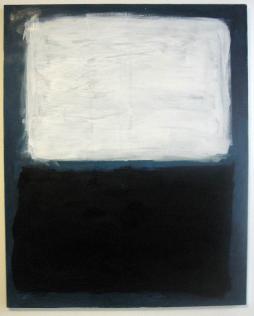Every week, parshaoftheweek.com brings you a rich selection of material on parshat hashavua, the weekly portion traditionally read in synagogues all over the world. Using both classic and contemporary material, we take a look at these portions in a fresh way, relating them to both ancient Jewish concerns as well as cutting-edge modern issues and topics. We also bring you material on the Jewish holidays, as well as insights into life cycle rituals and events...
In this week’s parsha, Vayetze, Yaakov, after his dream of the ladder stretching from heaven to earth, is given a series of blessings by God. These include the statement that Yaakov’s “descendants will be as the dust of the earth, and you will break forth, to the west, the east, the north and the south, and all the families of the world will be blessed by you and your descendants.” The promise that his descendants will be like the dust of the earth was originally given to Yaakov’s grandfather, Avraham. There, it is explicitly about their being numerous, as it continues “just as if a man could number the dirt of the ground, so, too, your descendants will be able to be numbered.” Here, too, in our parsha, with Yaakov, the phrase is read by most as meaning you will be so numerous that, like the very earth itself, you will spread out in all directions, either in the entire world or in your own homeland.
The Sforno (Rabbi Ovadiah Sforno, Italy, 1475-1550), who says nothing about this phrase when it is spoken to Avraham, has a different understanding of it here. He sees the “dust of the earth” image as a negative thing: your descendants, in exile, will be treated like dirt; they will be horribly oppressed, brought low, trampled on, like dirt. After that experience, they will return to their homeland, Israel, and there they will multiply and fill the land, spreading in it to all directions, west, east, north, and south.
Living, as we do, after the momentous events of the twentieth century, it is hard not to identify what the Sforno says with the Holocaust and the subsequent establishment of the State of Israel. During the Shoah, Jews were, indeed, as weak, powerless, and, in the eyes of their inhuman oppressors, as worthless, as the dust of the earth. And then, almost immediately after that catastrophe, the State of Israel was established, and we are now, a mere seventy years later, pushing at the boundaries of our country, with our population growing at a terrific pace, and the land being settled and built up quite extensively (perhaps too extensively for some, but that’s another topic).
But the Sforno lived in the 15th and 16th centuries, and did not know all this. Why, then, does he choose this negative understanding of the “dust of the earth” phrase, when others see it as being a positive statement about there being large numbers of Jews (with the additional hint, perhaps of lowliness, at times, just as the promise that they will be as numerous as the stars indicates a more exalted position)? Why does he read what looks like the blessing of fecundity as a curse of lowliness?
In his explanation, the Sforno says the following: “for, actually, the salvation of God which will be in the future will come after all the lowliness Israel is now experiencing, in their exile, the likes of which there will not be.” The Sforno is looking at the reality of the exile in which he lives, his reality – a reality into which Yaakov, as he leaves Canaan, is about to enter - and extrapolates from there to what he assumes the arc of Jewish history will be: our suffering, as homeless exiles, will only get worse and worse, and will reach an almost unimaginable nadir. Only then will salvation come, and Jewish history be reversed.
With hindsight, we can say that, to a large degree, it is that very suffering which enabled the return to Zion. In the decades before the Shoah, and, obviously, with the Shoah itself, the impossibility of living in a stateless, defenseless, helpless reality become clearer and clearer to some Jews. It was out of this sense of having reached an impasse, of having come to the end of our options as a wandering, homeless people, that Zionism stopped being a hope and dream, and became a practical, political program. The dynamic the Sforno sees at work in these phrases – being brought low, as low as dirt, in exile, and only then succeeding and flourishing, in our homeland – is now explained as a horrible historical necessity. The energy needed to return home and build a country would, tragically, only be generated by the vicious oppression we experienced in exile. Deep in the exile he was experiencing, the Sforno seems to have seen how Jewish history would be shaped by the awful experience of helpless, oppressive, statelessness, and force us into embracing a new reality of redemption.
Shabbat Shalom,
Shimon



Get inspired by Vayetze Divrei Torah from previous years